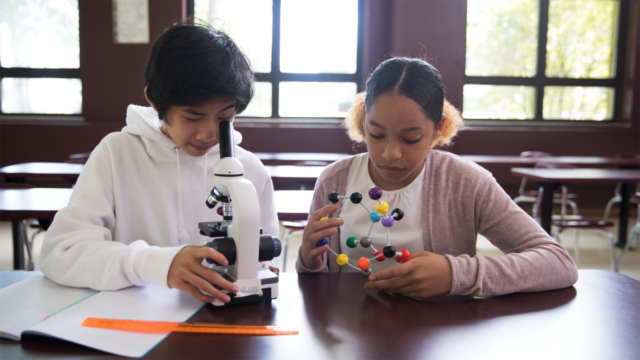
Distance education is when education provided without the teacher and students being physically present. While distance education, also referred to as distance learning or remote learning, can provide students with flexibility in pacing and scheduling, unique challenges may arise. Sometimes teachers or students may not have reliable—if any—internet access. If ever you or your students are ever faced with technical issues or poor internet connection, consider the following ideas and strategies to ensure all students continue learning.
Learning game boards (grades 3-8)
While everybody is different in what games they like and how they like to play them, nearly everyone can agree that games are fun.
Remote learning without technology can be turned into a game customized to the student, teacher, and school. Create a game board of learning options and then design rules around the board. For example:
- Download a blank learning choices game board and add activities or use our ready-to-go board that we've completed with activity options like "Rewrite the ending of a movie," "Conduct a survey and graph the results," and "Design a logo for a local business." The student rolls a die to determine which activity to complete.
- Every month, give students a blank calendar and about 20 activity cards (one for every weekday of the month). Each activity is a project that takes about a day to complete.
If you decide to create your own game board, talk to your students and involve them in the process. You can ask students what do they want to learn about?
Campfire stories
Distance learning doesn't necessarily mean webcam learning. Consider getting the whole class on a phone call, if a phone is accessible to each student, and imagine you're all sitting around a campfire at night. Look for ways to turn "campfire stories" into an educational endeavor that can span subjects and grades:
- Take turns having one student pick a number. The remaining students (and you, the teacher!) go around asking yes/no questions. For example, "Is the number even?" "Is the number less than 100?" "Is the number a fraction?" How fast can you guess the number?
- The above game works when teaching about taxonomy or properties of objects, too. Have one student choose an object they can see, for example a notebook or toy, and have classmates go around trying to identify it by asking yes/no questions.
- Prior to the phone call, have all students find a poem that they like. Students can take turns reading their poems. Or you could decide on a poem ahead of time and have students take turns reading lines or stanzas.
Passion project (grades 6-12)
We live in a world more connected than ever. What are your students passionate about? Video games? Have them develop a video game concept. Music? Have them make a song using found objects. Soccer? Have them organize a fantasy league. In fact, it doesn’t really matter what the project is, it just has to be something they care about.
You can guide students through a low-floor, high-ceiling form of learning. Consider these tasks that can take anywhere from an hour to a year:
- Write a book.
- Start a business.
- Invent something new.
- Change a law.
If older students have a passion for, say, jewelry-making and a goal to sell their creations, they can spend one hour doing some surface-level calculations on costs and revenue. Or they can spend all year raising funds, calculating profit (or loss), working with an adult who can supervise the money, and distributing their quarterly press releases to you and their classmates!
Teach around entertainment (grades 6-12)
How do your students seek entertainment? Do they play video games or watch television? If students have access to phone or computer, ask them to consider investing time in learning a video game, then have them critically analyze different aspects of the game, such as how it is engineered, what story it tells, and how the game explores themes and character. Or have students try to list all of the sets, props, actors, and film crew members needed to calculate the budget for their own TV show. Then have them write it!
In particular, teaching around entertainment can lend itself well to a passion project. You may not be able to stop a student from playing their favorite game all the time, but you are suddenly empowered to teach around it.
When you are planning your remote lessons, it's important to make them accessible for students who might be using mobile devices. Some students may only have phones or tablets to work with, or if they have unreliable internet connection they may use mobile data. It's also a good idea to be mindful of how much data your materials use. For example, sending plain text in an email uses far less data than attaching a PDF. With these tips in mind, you will be able to reach students even if they don't have internet access.
* * *
This blog, originally published in 2020, has been updated for 2025.
Be the first to read the latest from Shaped.















